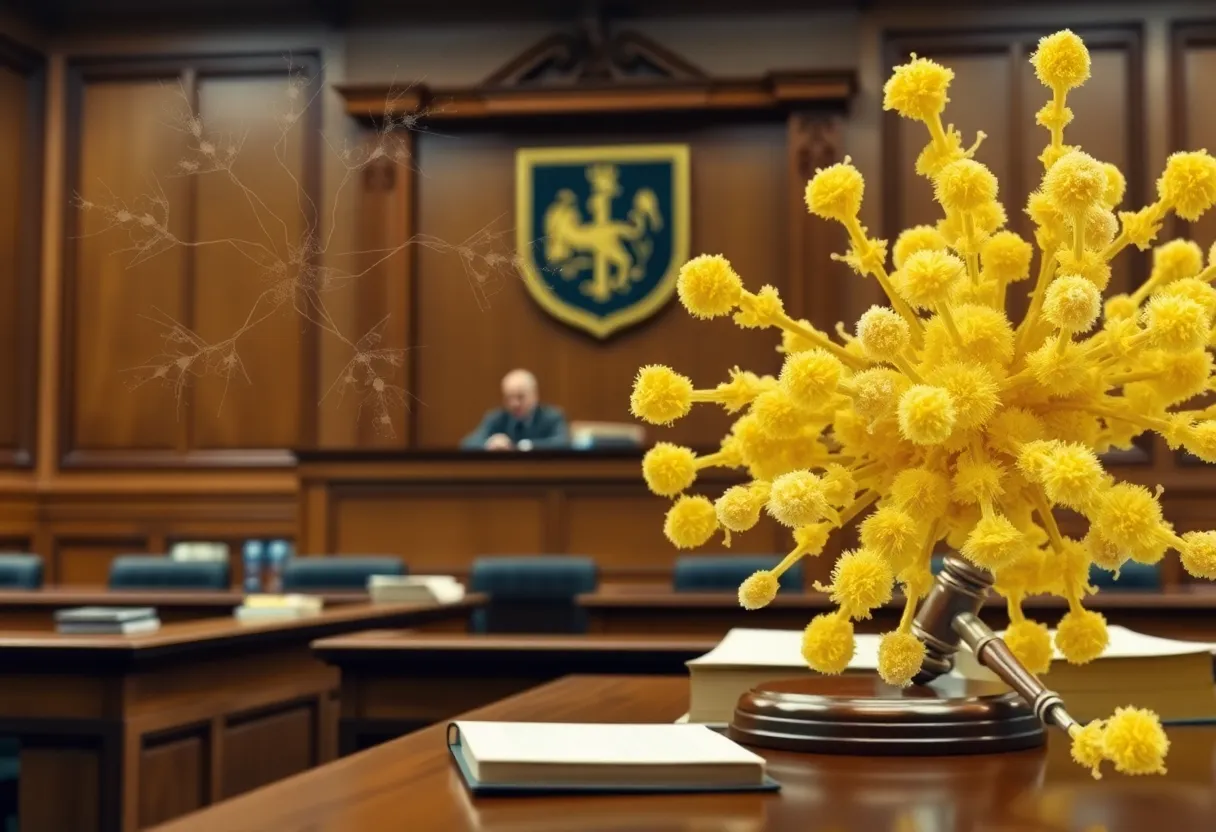News Summary
A Rhode Island judge upheld the jury’s decision favoring Union Carbide in a significant asbestos-related case involving its product, Calidria.
Judge Denies New Trial for Union Carbide in Significant Asbestos Case
A recent decision by Rhode Island Superior Court Judge Richard A. Licht has upheld the jury’s verdict favoring Union Carbide Corporation in a pivotal case concerning its trademark asbestos product, Calidria. The case, known as Day, et al. v. Union Carbide Corporation, brings to the forefront substantial legal discussions around product liability and the implications of asbestos exposure, especially concerning its link to serious health conditions such as mesothelioma.
Background of the Case
The plaintiffs accused Union Carbide of manufacturing a hazardous product, claiming that Calidria was dangerous, defective, and unfit for its intended purpose. The crux of the plaintiffs’ argument revolved around an instruction included in the jury’s guidelines, specifically jury instruction number nineteen. This instruction addressed product liability protections for manufacturers under Rhode Island General Laws, which the plaintiffs contended was misapplied as there was no evidence to suggest that Calidria was modified or altered.
Judge Licht’s Ruling
In denying the motion for a new trial, Judge Licht acknowledged that although the jury instruction in question was erroneous, he deemed the error to be harmless. The judge emphasized that the jury had been provided with an extensive list of instructions—over thirty pages—making it unreasonable to attribute the verdict solely to this one short instruction. The lack of discussion around this particular instruction during closing arguments from both parties further underscored its limited impact on the jury’s deliberations.
The plaintiffs put forward four theories of liability, struggling to convince the jury that Calidria posed a threat or was indeed defective. Judge Licht concluded that enough evidence supported the jury’s ultimate decision that Calidria was not dangerous or unfit for its applications.
Expert Testimonies and Evidence
Compelling testimonies from experts attempted to highlight the perils of asbestos and link it to the tragic case of Bonne Bonito, who developed peritoneal mesothelioma. Various experts detailed the hazards associated with all types of asbestos, including chrysotile asbestos—of which Calidria is a variety. Yet, the defense managed to present a counter-argument through testimonies, including insights from Dr. James Crapo, indicating that Calidria lacked carcinogenic properties and was therefore safe for use.
This marked divergence in expert opinions presents a complex narrative surrounding the safety of asbestos products and their regulation in manufacturing industries. The jurors evidently aligned with the defense’s interpretation based on the evidence they were presented.
Legal Implications and Ongoing Discussions
The ruling mirrors a growing trend in legal discourse surrounding product liability and represents a significant win for Union Carbide amidst rising scrutiny around asbestos and its health risks. Furthermore, Judge Licht rejected Union Carbide’s motion for judgment as a matter of law under Rule 50, acknowledging that had the jury leaned towards the plaintiffs’ side, sufficient evidence would have supported their claims.
This case unfolds against a backdrop of various concurrent legal developments in Rhode Island, including a senator-approved bill affecting public school regulations and other court-related news. The outcome of this particular trial is poised to influence future cases involving asbestos claims, as it continues to spark discussions on occupational health and the responsibilities of manufacturing companies regarding product safety.
As the legal landscape around asbestos litigation evolves, cases like Day v. Union Carbide will undoubtedly remain focal points for both legal professionals and those affected by asbestos exposure, further emphasizing the need for rigorous examination of product safety and public health regulations.
Deeper Dive: News & Info About This Topic
HERE Resources
The Closure of CARD: A Dire Blow for Mesothelioma Patients in Libby, Montana
Asbestos Trusts Set to Destroy Vital Evidence, Raising Alarm Among Victims and Legal Experts
Libby, Montana: A Community’s Health Care Lifeline Falls Silent
Tragic Death of Retired Carpenter Linked to Asbestos Exposure
Asbestos Concerns Haunt Families of Wycombe Hospital
High Court Seizes Assets in Asbestos Corruption Case
Asbestos Concern Following Piggery Demolition in Cork
Healthcare Hero Faces Grim Diagnosis: Mesothelioma Linked to Asbestos Exposure
The Dark Legacy of Asbestos at Electric Boat Shipyard
Rising Concern Over Asbestos Exposure Among Veterans



















